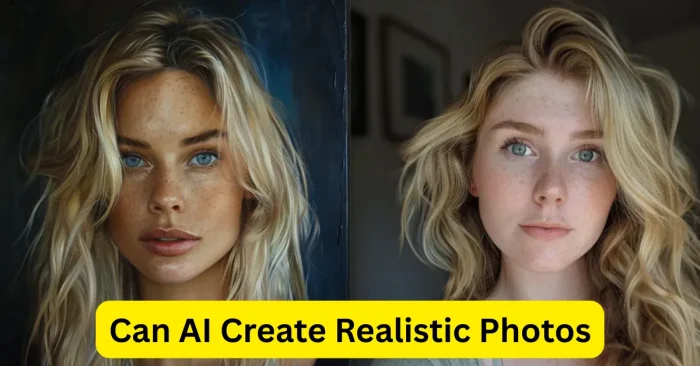Can AI Create Realistic Photos?
Artificial Intelligence has advanced to a level where it can generate photos that appear indistinguishable from those taken by a camera. By using advanced deep learning models, such as Generative Adversarial Networks (GANs) and diffusion models, AI can produce highly detailed and lifelike images. These technologies have revolutionized industries like digital art, marketing, fashion, and even product photography. The question is not only whether AI can create realistic photos but also how accurate, ethical, and beneficial these tools are in various applications.
How AI Generates Realistic Photos
AI generates realistic photos by analyzing massive datasets of real images. Algorithms learn patterns of light, shadows, textures, and proportions. With this understanding, AI can reconstruct or create completely new visuals that mimic real-world photography. Popular AI models like DALL·E, Stable Diffusion, and MidJourney are known for their ability to produce high-resolution images with human-like realism. Many of these tools allow users to input text prompts, reference sketches, or sample images to guide the output. This has opened opportunities for professionals and non-professionals to create photorealistic images without expensive equipment.
Benefits of AI-Generated Realistic Photos
One major advantage of AI-generated photos is accessibility. Businesses no longer need high-end cameras, sets, or photographers to create professional images. Designers and marketers can produce tailored visuals instantly. AI also allows experimentation without cost or time restrictions, enabling creative freedom for personal and professional projects. For example, e-commerce stores can create product mockups, and fashion designers can visualize new outfits before manufacturing. Additionally, AI helps save time and reduces expenses for startups and small businesses. With growing realism, AI-generated photos are also useful in industries like gaming, film production, and advertising.
Challenges of AI Photo Creation
Despite the advantages, AI-generated realistic photos come with challenges. Ethical concerns, such as misuse for deepfakes or spreading misinformation, are serious issues. Another challenge is maintaining accuracy. While AI can create stunning images, sometimes details like hands, reflections, or facial features may appear distorted. Additionally, questions of copyright ownership and originality still spark debates in the creative community. For professional use, users must verify authenticity and ensure that AI-generated images are not misleading or violating intellectual property rights. Responsible usage is key to maximizing the benefits of AI photo generation.
Popular AI Tools for Realistic Photos
Several AI tools specialize in generating realistic photos for different needs. Some are free while others offer premium features for professionals. Below are five widely used AI tools:
DALL·E 3
DALL·E 3 by OpenAI creates lifelike photos from text prompts with remarkable accuracy. It is known for its ability to follow user instructions closely and produce creative results.
Stable Diffusion
Stable Diffusion is an open-source AI model that generates high-quality, realistic photos. It offers flexibility, allowing users to fine-tune images with custom prompts and models.
MidJourney
MidJourney specializes in artistic and surreal visuals but is also capable of producing realistic photos. It is popular among designers and digital artists for its unique style control.
Runway ML
Runway ML offers AI tools for video and photo creation. It provides realistic editing, background replacement, and face generation features for professionals in media and marketing.
Fotor AI Photo Generator
Fotor allows users to generate and edit realistic photos for free. Its AI photo generator is beginner-friendly, making it suitable for personal and business projects without technical expertise.
Frequently Asked Questions (FAQs)
Can AI photos look identical to real photos?
Yes, AI-generated photos can appear identical to real ones, especially with advanced models like DALL·E and Stable Diffusion, which produce highly detailed and photorealistic results.
Are AI-generated photos legal to use?
Yes, AI-generated photos are legal to use, but copyright and ownership vary depending on the platform. Users should check usage rights before using them for commercial purposes.
What industries benefit most from AI-generated photos?
Industries like marketing, advertising, fashion, gaming, and film benefit the most from AI-generated photos due to their ability to create quick, realistic visuals without heavy costs.
Do AI photo generators require technical skills?
No, most AI photo generators are beginner-friendly and allow users to create realistic photos using simple text prompts or uploaded images.
Can AI-generated photos replace professional photography?
AI-generated photos may replace certain areas of photography, such as product mockups or digital ads. However, professional photographers still play a vital role in capturing real-life moments and events.






